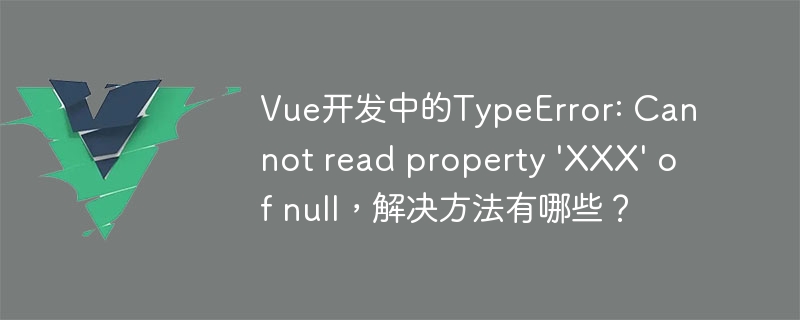
Vue开发中的TypeError: Cannot read property 'XXX' of null,解决方法有哪些?
在Vue开发中,经常会遇到类型错误(TypeError)的问题,尤其是当尝试读取一个null值的属性('XXX')时。这个错误通常表示在数据绑定或计算属性的过程中出现了问题。本文将介绍如何解决这个问题,并提供一些常见的解决方法。
总结:
在Vue开发中遇到TypeError: Cannot read property 'XXX' of null的问题时,需要仔细检查数据是否被正确初始化,并使用条件渲染、计算属性预处理数据、异常处理以及适当选择v-show指令等方法来解决问题。通过合理的处理,我们可以避免这个错误并提高开发效率。
以上就是Vue开发中的TypeError: Cannot read property 'XXX' of null,解决方法有哪些?的详细内容,更多请关注php中文网其它相关文章!

每个人都需要一台速度更快、更稳定的 PC。随着时间的推移,垃圾文件、旧注册表数据和不必要的后台进程会占用资源并降低性能。幸运的是,许多工具可以让 Windows 保持平稳运行。




Copyright 2014-2025 https://www.php.cn/ All Rights Reserved | php.cn | 湘ICP备2023035733号